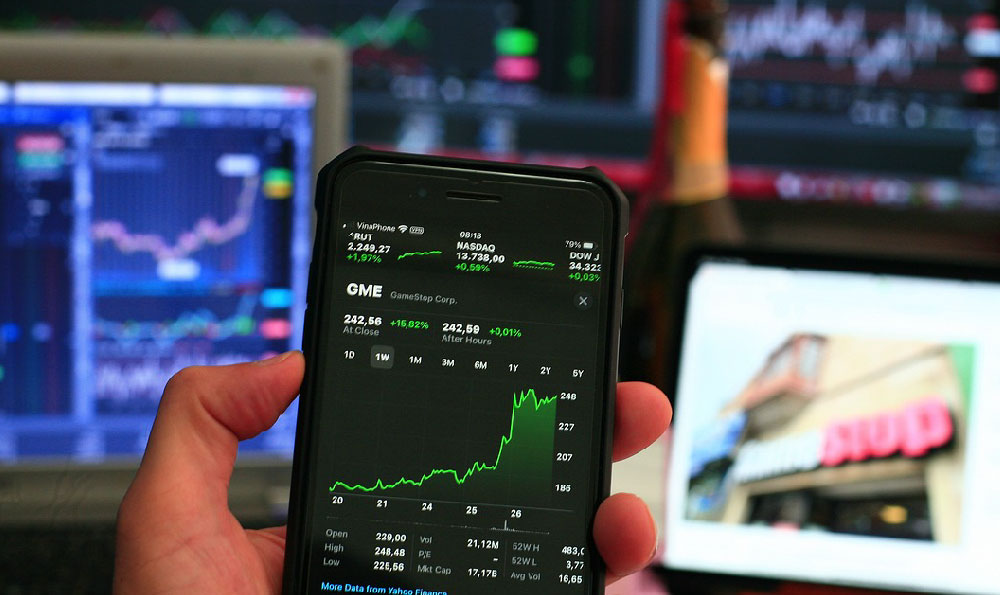Cash App, with its user-friendly interface and widespread adoption, has undoubtedly carved a niche for itself in the financial landscape. The platform’s accessibility, particularly for newcomers to the world of investing, makes it an appealing option for dipping one's toes into the stock market or, more recently, the cryptocurrency market. However, before entrusting your hard-earned money to any investment platform, a thorough evaluation of its features, limitations, and overall suitability for your financial goals is paramount. When it comes to virtual currency investments via Cash App, it presents a somewhat of a double-edged sword.
On the one hand, the simplicity is a major draw. Buying and selling Bitcoin within the Cash App ecosystem is remarkably straightforward. The platform boasts an intuitive design, making it easy for even complete beginners to understand the process. There are no complex order books to navigate, no confusing trading terminology to decipher. You simply specify the amount you want to buy or sell, confirm the transaction, and you're done. This accessibility is particularly appealing to individuals who might be intimidated by the complexities of traditional cryptocurrency exchanges. Furthermore, Cash App allows for fractional ownership of Bitcoin. Meaning, you don't need to buy an entire Bitcoin, which can be prohibitively expensive. You can purchase as little as a few dollars' worth, making it a very low barrier to entry for those with limited capital. Another advantage is the integration with the Cash App ecosystem. If you already use Cash App for other purposes, such as sending and receiving money from friends and family, adding Bitcoin investment to your existing routine can be quite seamless. Funds can be easily transferred between your Cash App balance and your Bitcoin wallet, streamlining the process.
However, despite these apparent benefits, several crucial considerations must be carefully weighed before deciding if Cash App is the right platform for your virtual currency investments. One significant drawback is the limited cryptocurrency options. Currently, Cash App typically only offers Bitcoin, limiting your investment diversification. The world of virtual currencies extends far beyond Bitcoin, with numerous other altcoins offering different risk-reward profiles and potential growth opportunities. By restricting yourself to Bitcoin, you're missing out on a potentially wider range of investment options and limiting your ability to hedge against Bitcoin's volatility.

Another important factor to consider is the fees. While Cash App doesn't explicitly charge commission fees for buying and selling Bitcoin, they do incorporate a "spread" into the price. This means they buy Bitcoin at a slightly lower price than they sell it, pocketing the difference as profit. This spread, which can vary depending on market conditions, can eat into your profits, especially if you engage in frequent trading. It's crucial to compare Cash App's prices with those offered by other cryptocurrency exchanges to ensure you're getting a competitive rate. Furthermore, Cash App doesn't offer advanced trading features. For experienced traders, Cash App lacks the tools and functionalities necessary for implementing sophisticated trading strategies. There are no limit orders, stop-loss orders, or charting tools available. This limitation makes it difficult to actively manage your investments and take advantage of short-term market fluctuations. This also means you are essentially buying at market price, which, depending on volatility, could immediately put you in the red given the spread.
Security is also a paramount concern when dealing with virtual currencies. While Cash App implements security measures to protect your account, it's essential to understand that no platform is completely immune to hacking or theft. Cryptocurrency, being a digital asset, is inherently vulnerable to cyberattacks. It is important to employ your own security best practices such as two-factor authentication, strong passwords, and enabling all platform-provided safety measures. Another risk arises from Cash App not technically providing you with custody of the Bitcoin you purchase. You are essentially entrusting them with your assets. While Cash App has a strong reputation, keeping your own cryptographic keys in your personal wallet offers a higher degree of security and control. If the company were to face bankruptcy or some other unforeseen event, it could potentially impact your access to your holdings.
In conclusion, Cash App can be a convenient and accessible platform for beginners looking to dip their toes into Bitcoin investing. Its simplicity and integration with the Cash App ecosystem make it an appealing option for those who are new to the world of virtual currencies. However, its limitations, including the limited cryptocurrency options, hidden fees, lack of advanced trading features, and custodial risks, make it less suitable for experienced traders or those seeking greater control over their investments. Before investing through Cash App, compare its fees with other reputable exchanges and determine if the simplicity and convenience outweigh the limitations. For serious virtual currency investors, exploring platforms that offer a wider range of currencies, lower fees, advanced trading tools, and greater control over their digital assets is crucial for achieving long-term financial goals and effectively managing risk. Consider your experience level, your investment goals, and your risk tolerance before deciding whether Cash App aligns with your needs, or if exploring more robust cryptocurrency platforms is the better path. Diversification, thorough research, and a clear understanding of the risks involved are always essential aspects of successful virtual currency investing, regardless of the platform you choose.












